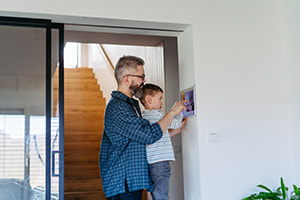 Top 15 Ways to Buy a Home in the USA with Little or No Money Down Buying a home can feel like a dream that’s out of reach, especially when you think about saving up for a big down payment. But the good news is, there are plenty of ways to buy a home without having a huge pile of cash. Here are 15 options to help you make homeownership a reality, explained in simple terms:
0 Comments
 A home energy audit evaluates your home's energy efficiency and identifies areas for potential savings on energy costs. If you have high energy bills or notice uneven temperatures, an audit can pinpoint the issues. It helps uncover energy-wasting spots, from drafty windows to poor insulation, and suggests improvements. What Happens in a Home Energy Audit? An energy audit usually takes two to four hours, depending on your home's size and system complexity. A certified professional inspects your home from foundation to attic, using tools like blower doors and infrared cameras to detect air leaks, insulation gaps, and inefficiencies. They evaluate insulation, HVAC systems, windows, and appliances to identify energy loss and recommend improvements. What You Need for a Home Energy Audit To ensure an accurate audit, gather your utility bills from the past 12 months to show your energy usage patterns. Provide easy access to areas like the attic and basement, and highlight specific concerns like drafts or uneven temperatures for the auditor to address. How Much Does a Home Energy Audit Cost? On average, a home energy audit costs around $425. However, some utility companies offer free or discounted audits, though these may be less detailed. Additionally, the Energy Efficient Home Improvement Tax Credit (25C) allows homeowners to claim 30% of the audit cost, up to $150 annually. What Are the Benefits of an Energy Efficiency Assessment?
For many homeowners, the initial cost of an energy audit is outweighed by long-term savings on energy bills. If you face high bills or notice drafts and uneven temperatures, an audit can identify improvements. However, newer homes with updated appliances may see less benefit, with a DIY walkthrough being sufficient. |
AuthorBe informed with the latest real estate news and useful real estate related information. Archives
March 2025
Categories
|
